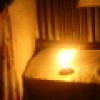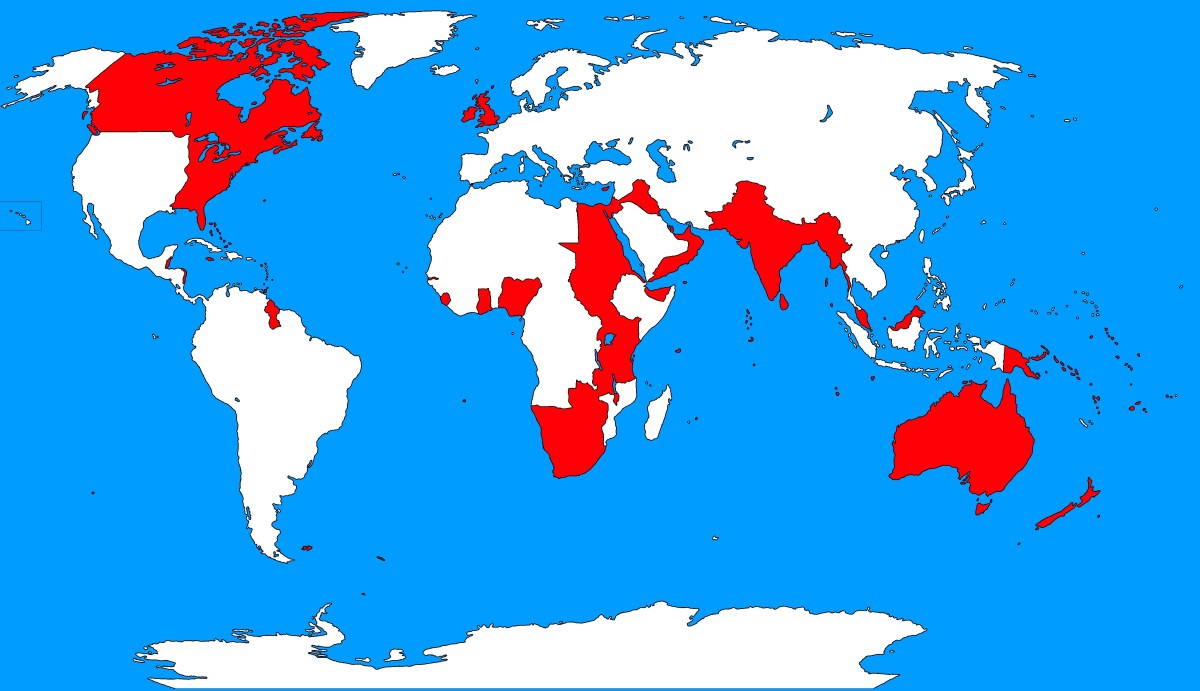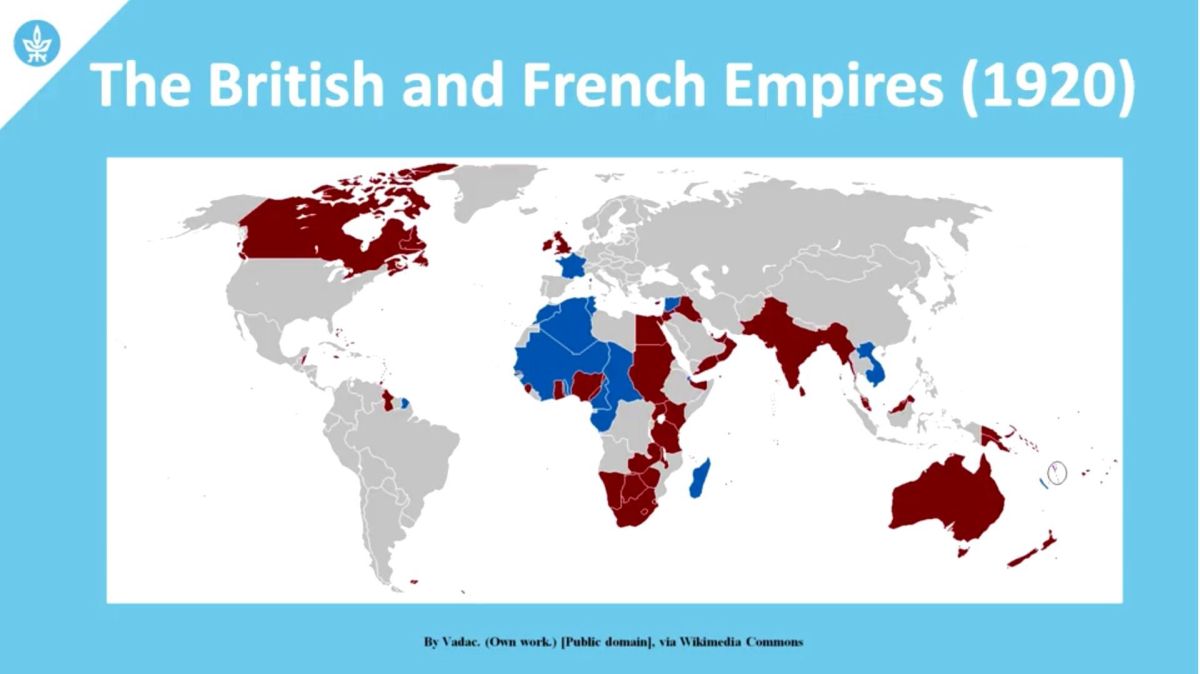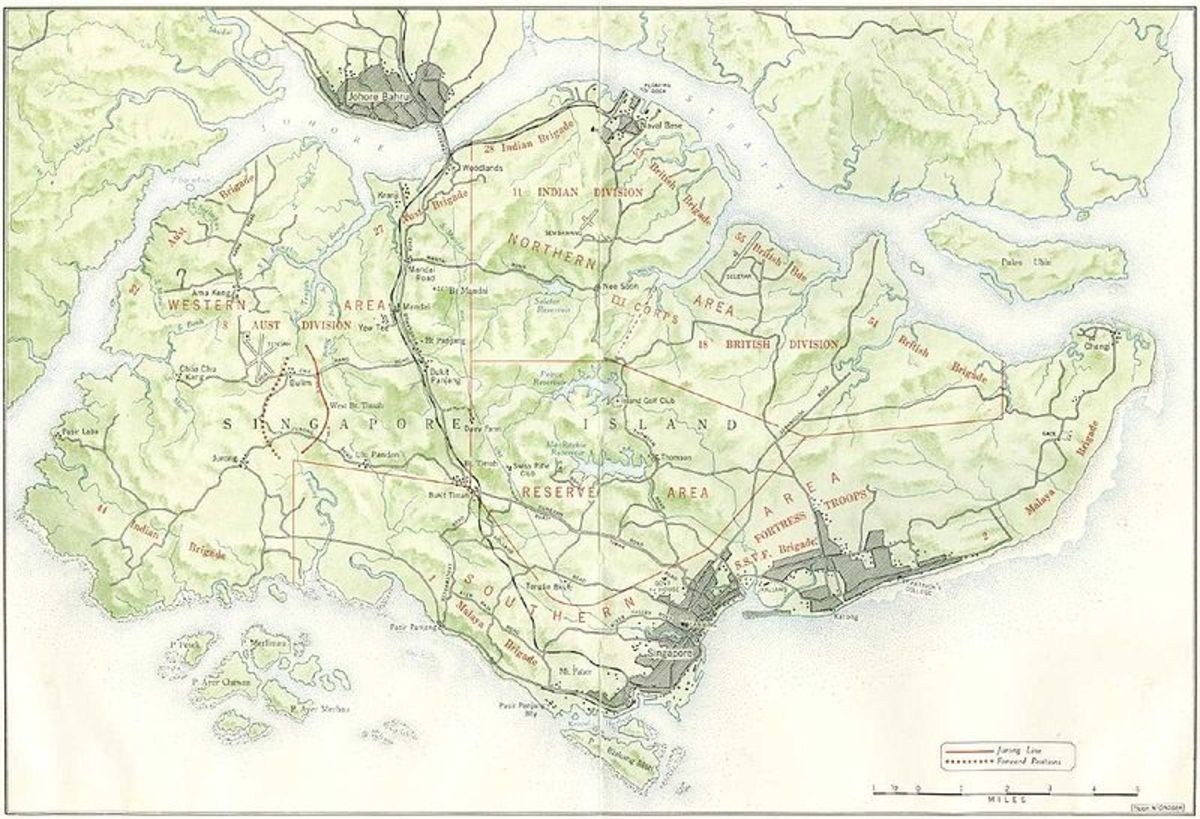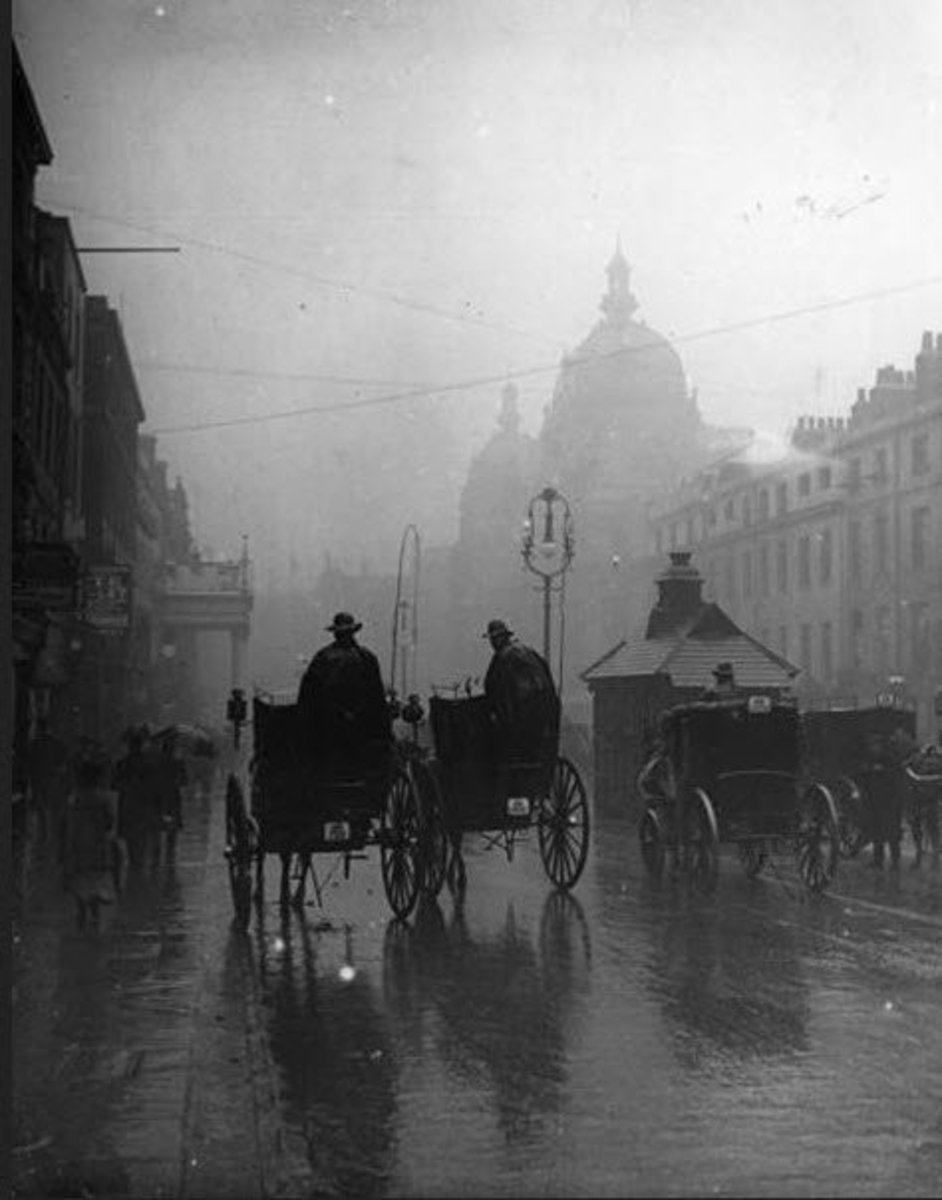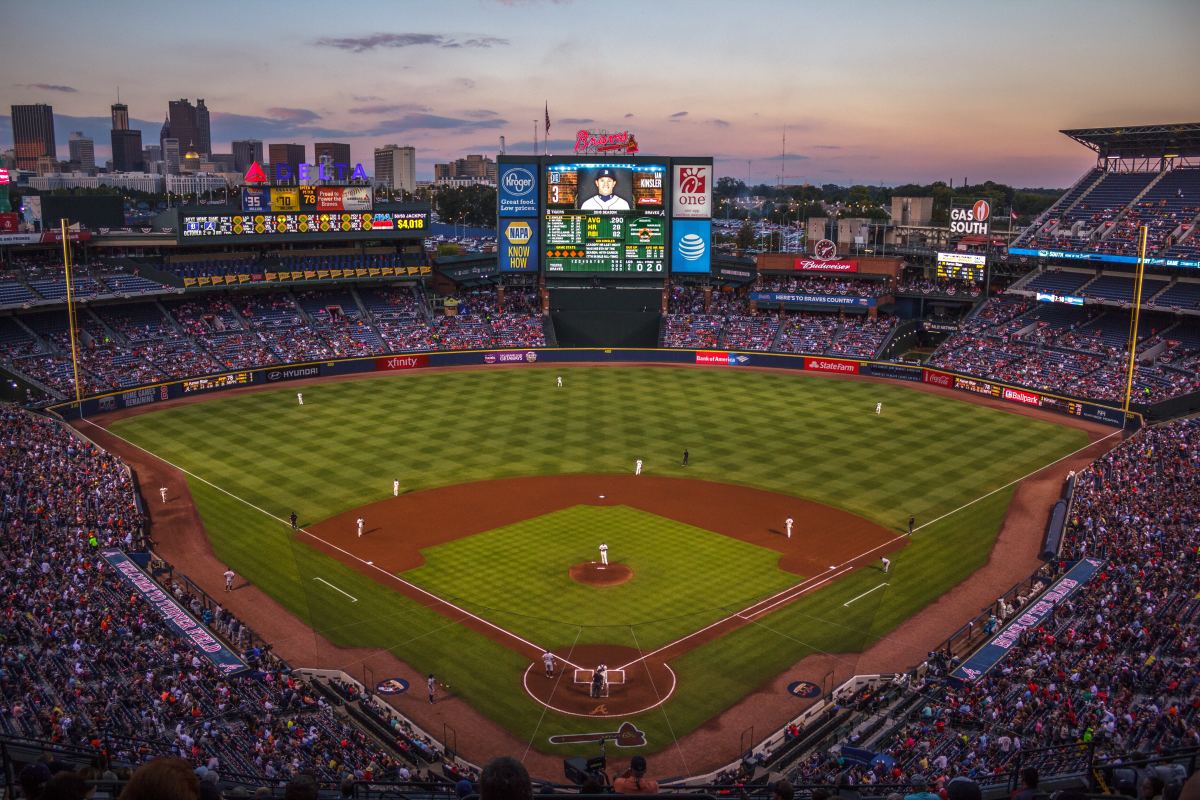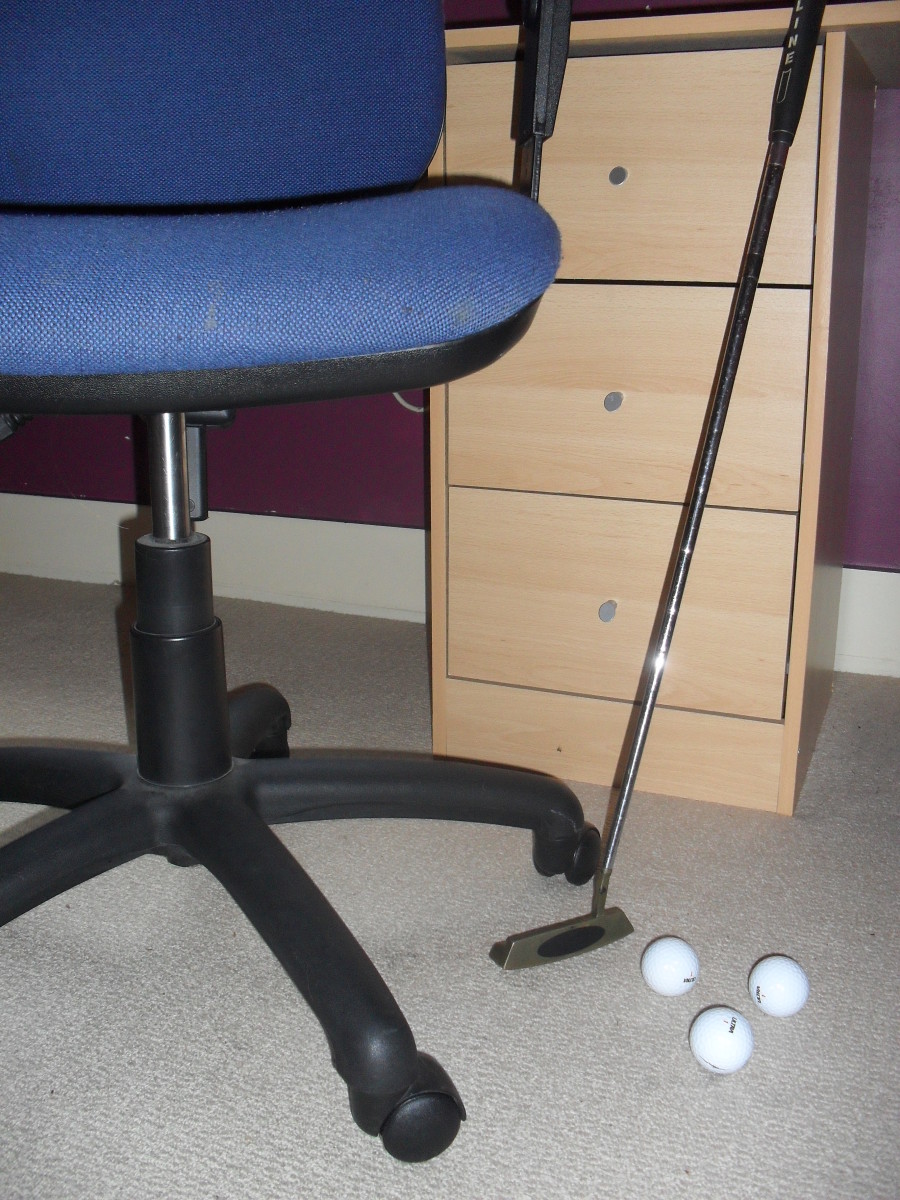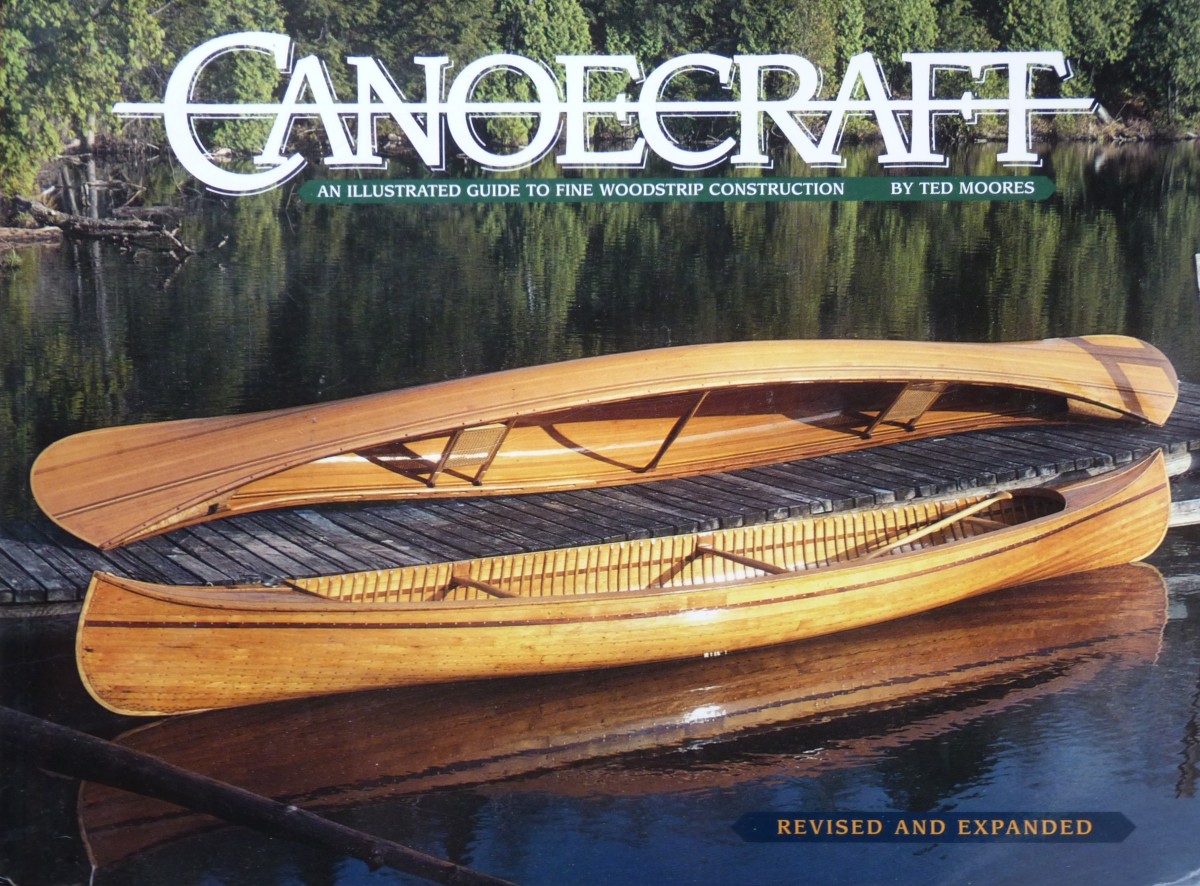The History of the Commonwealth Games
The British Empire
At its peak in 1922, the British Empire covered 33,670,000 square kilometers; a quarter of the earth’s land surface area. By then the population of the empire was roughly 458 million people. The empire had dominions, colonies, protectorates, mandates, and other territories in Asia, Africa, Australia and New Zealand, Americas and Europe. Due to the stretch of the empire in literally all the corners of the globe a saying "the sun never sets on the British Empire", because at either sunset or sunrise, the sun illuminated in at least one of the British empires territory was used to describe. But the settlers of the English origin in Africa wanted more land, more control, more loyalty to the empire and they stooped at nothing. In Africa, they took land from the natives, forced the natives to work for them and classified them into racial classes.
With the end of 1st World War in 1918, and with the loss of Germans, the League of Nation placed Tanganyika and Namibia under the British care. Many natives of the British Empire took part in the war, this made many of them interact with the colonizers and this made them learn of their weaknesses. After the war, many went back and started demanding for independent. The British were not about to let it go, they started arresting some of the people fighting for independence, but those were the first cracks of the empire.
After the Second World War, many of the colonies started fighting for independence and in 1947, India was granted its independence and a decade later Ghana became the first African Country to gain its independence and by 1965 most of the British former colonies were independent.
The British Empire Games
The whole idea of the Commonwealth Games was proposed by Reverend Astley Cooper in 1891 in an article he wrote The Times suggesting a Pan Britannic-Pan Anglican Contest and festival every four years with an objective of increasing and creating an understanding of the British Empire. Twenty years later; on the King George V coronation a festival and Inter-Empire Championships was part of the events. Only four teams participated; United Kingdom, Australia, Canada and South Africa. It was not until 1928, when Melville Marks (Bobby) Robinson, a Canadian sports reporter for the Hamilton Spectator was the manager of the Canadian track and field team of the 1928 Summer Olympics in Amsterdam. It was in this Olympics that Robinson got the contacts he sold the idea of holding British Empire Games with an objective of "spirit of friendly competition". Two years later, the first ever Commonwealth Games were held in Hamilton Ontario under the name of British Empire Games.
The 1930 British Empire Games had no flag but it would later be donated a year later in 1931 by the British Empire Games Association of Canada. It was still in 1931 when the locations and the years of the subsequent games were added going to the 1950 games. The 1950 games were the last to use the name British Empire Games. The name of the game changed to the British Empire and Commonwealth Games and the flag of 1931 was retired.
The Commonwealth Name Change
The names of the Commonwealth Games have been changed 3 times. The Commonwealth Games were first known as the British Empire Games from 1930 to 1950, the name was later changed to British Empire and Commonwealth Games. The 5th edition of the Commonwealth Games of 1954 in Vancouver, Canada was the first to be known under the new name of British Empire and Commonwealth Games and it would remain unchanged but would be used for the last time in the 1966 held in Kingston, Jamaica. After Jamaica Commonwealth Games, the name changed to British Commonwealth Games and the name would be used until Edmonton, Canada in 1978. In 1982, the current name; The Commonwealth Games was adopted and has been in use since then.
Historical Facts of the Commonwelath Games
NAME
| YEAR AND DATES
| HOST
| NUMBER OF TEAMS
| NUMBER OF SPORTS
|
|---|---|---|---|---|
British Empire Games
| 1930
| Hamilton, Canada.
| 11
| 6
|
British Empire Games
| 1934
| London, England.
| 16
| 6
|
British Empire Games
| 1938
| Sydney, Australia.
| 15
| 7
|
British Empire Games
| 1950
| Auckland, New Zealand
| 12
| 9
|
British Empire and Commonwealth Games
| 1954
| Vancouver, Canada
| 24
| |
British Empire and Commonwealth Games
| 1958
| Cardiff, Wales
| 35
| 9
|
British Empire and Commonwealth Games
| 1962
| Perth, Australia
| 35
| 9
|
British Empire and Commonwealth Games
| 1966
| Kingston, Jamaica
| 34
| 9
|
British Commonwealth Games
| 1970
| Edinburgh, Scotland
| 42
| 10
|
British Commonwealth Games
| 1974
| Christchurch, New Zealand
| 9
| |
British Commonwealth Games
| 1978
| Edmonton, Canada
| 46
| 10
|
The Commonwealth Games
| 1982
| Brisbane, Australia
| 46
| 9
|
The Commonwealth Games
| 1986
| Edinburgh, Scotland
| 26
| 10
|
The Commonwealth Games
| 1990
| Auckland, New Zealand
| 54
| 10
|
The Commonwealth Games
| 1994
| Victoria, Canada
| 63
| 10
|
The Commonwealth Games
| 1998
| Kuala Lumpur, Malaysia
| 70
| 15
|
The Commonwealth Games
| 2002
| Manchester, England
| 71
| 17
|
The Commonwealth Games
| 2006
| Melbourne, Australia
| 71
| 16
|
The Commonwealth Games
| 2010 (October 3rd to 14th)
| Delhi, India
| 71
|
1930 Commonwealth Games
The first Commonwealth Games were held in 1930. These games were known as the British Empire Games. The 1930 games were held in Hamilton in the Ontario province of Canada. The games were held from August 16 to August 23 of 1930. Eleven nations participated in six sports: boxing, lawn bowls, rowing, swimming and diving, track and field and wrestling, bringing together 400 participants. The participating nations were host Canada, Australia, Bermuda, British Guyana, Canada, England, Northern Ireland, Newfoundland, New Zealand, Scotland, South Africa and Wales.
The games were held at the Civic Stadium currently known as Ivor Wynne Stadium and women only participated only the in swimming events.
England won majority of the medals with a total of 60 medals which included 25 gold, 22 silvers and 13 bronze. The host Canada came in second with 20 gold, 16 silver, and 18 bronze, totaling 54 medals. South Africa had 6 gold, 4 silver and 8 bronze. New Zealand came in fourth with a total 9 medals which included 3 gold, 4 silver and 2 bronze. The other medal winners were Australia with 3 gold, 4 silvers and 1 bronze. Scotland managed 2 gold, 3 silvers and 5 bronze. Wales managed 2 silvers and 1 bronze, British Guyana had 2 medals, silver and a bronze and Ireland managed to go home with only silver. A total of 165 medals were awarded to nine teams.
1930 Commonwealth Games Medals Table
Country (Team)
| Position
| Number of Medals
| Gold
| Silver
| Bronze
|
|---|---|---|---|---|---|
England
| 1
| 60
| 25
| 22
| 13
|
Canada
| 2
| 54
| 20
| 16
| 18
|
South Africa
| 3
| 18
| 6
| 4
| 8
|
New Zealand
| 4
| 9
| 3
| 4
| 2
|
Australia
| 5
| 8
| 3
| 4
| 1
|
Scotland
| 6
| 10
| 2
| 3
| 5
|
Wales
| 7
| 3
| 0
| 2
| 1
|
British Guiana
| 8
| 2
| 0
| 1
| 1
|
Ireland
| 9
| 1
| 0
| 1
| 0
|
Bermuda
| 10
| Nil
| Nil
| Nil
| Nil
|
Newfoundland
| 10
| Nil
| Nil
| Nil
| Nil
|
The 1934 Commonwealth Games
The second Commonwealth Games were held under the name of British Empire Games in 1934 in London, England. The game took place from 4th to 11th of August, 1934. The main stadium of the 1934 Commonwealth Games was the White City Stadium although Empire Pool in Wembley was a venue for swimming and the Fallow field Stadium in Manchester was used for cycling sports. These games had been awarded to Johannesburg but later changed to London because of the South Africa apartheid policy and there was fear on how South Africans would treat the officials and participants from Asia and Africa.
500 participants competed in six sports featured: athletics, boxing, cycling, lawn bowls, swimming, diving, and wrestling. The women for the first time took part in the athletics but with a careful consideration that it was not 'too exhaustive'. 21 men and 9 women participated in the athletics events.
The 17 teams participating in these games were Australia, Bermuda, British Guiana, Canada, England, India, Irish Free State, Jamaica, Hong Kong, New Zealand, Newfoundland, Northern Ireland, Southern Rhodesia, Scotland, South Africa, Trinidad and Tobago and Wales
It was in these games that the 2010 Commonwealth Games host India participated for the first time. Other teams participating for the first time were Hong Kong, Trinidad and Tobago, the Irish Free State, Jamaica, Northern Ireland and Southern Rhodesia (Current Zimbabwe)
It was in the 1934 Commonwealth Games that an English athlete; Edith Halstead, won a silver medal for javelin competing as a woman but was later discovered to be a man. A total of 204 medals were awarded with England leading with 73 and the 2010 Commonwealth Games host; India crowned its debut with 1 medals a bronze.
Below is the medal table for the 1934 Commonwealth Games.
The White City Stadium

1934 Commomwealth Games Nations' Performance
Country (Team)
| Position
| Number of Medals
| Gold
| Silver
| Bronze
|
|---|---|---|---|---|---|
England
| 1
| 73
| 29
| 20
| 24
|
Canada
| 2
| 51
| 17
| 25
| 9
|
Australia
| 3
| 14
| 8
| 4
| 2
|
South Africa
| 4
| 22
| 7
| 10
| 5
|
Scotland
| 5
| 26
| 5
| 4
| 17
|
New Zealand
| 6
| 3
| 1
| Nil
| 2
|
British Guyana
| 7
| 1
| 1
| Nil
| Nil
|
Wales
| 8
| 6
| Nil
| 3
| 3
|
Northern Ireland
| 9
| 3
| Nil
| 1
| 2
|
Jamaica
| 10
| 2
| Nil
| 1
| 1
|
Zimbabwe then known as Southern Rhodesia
| 11
| 2
| Nil
| Nil
| 2
|
India
| 12
| 1
| Nil
| Nil
| 1
|
Bermuda
| 13
| Nil
| Nil
| Nil
| Nil
|
Hong Kong
| 13
| Nil
| Nil
| Nil
| Nil
|
Irish Free State
| 13
| Nil
| Nil
| Nil
| Nil
|
Newfoundland
| 13
| Nil
| Nil
| Nil
| Nil
|
Trinidad and Tobago
| 13
| Nil
| Nil
| Nil
| Nil
|
1938 Commonwealth Games
The 1938 Commonwealth Games were the third British Empire Games and they were held in Sydney Australia from February 5th to February 12 of the 1938. These games were timed to coincide with Sydney 150 years since the foundation of the British settlement in Australia. The main stadium these Commonwealth games was the Sydney Sports Ground, other stadiums used North Sydney Pool and Henson Park. The opening ceremony of the games was witnessed by 40,000 spectators.
464 participants from 15 nations competed in seven sports; boxing, cycling, lawn bowls, rowing, swimming and diving, track and field and wrestling.
The participating nations were Australia, Bermuda, British Guiana Canada, Ceylon (Sri Lanka), England, Fiji, India, New , Zealand, Northern Ireland, Southern Rhodesia (Zimbabwe), Scotland, South Africa, Trinidad and Tobago and Wales. This game was a debut for Sri Lanka and Fiji.
In this games, Decima Norman, an Australian won five gold medals. A total of 213 medals were awarded and to ten nations, see the table below, Australia lead by winning 66 medals.
1938 Commomwealth Games Nations' Performance
Country (Team)
| Position
| Number of Medals
| Gold
| Silver
| Bronze
|
|---|---|---|---|---|---|
Australia
| 1
| 66
| 25
| 19
| 22
|
England
| 2
| 40
| 15
| 15
| 10
|
Canada
| 3
| 44
| 13
| 16
| 15
|
South Africa
| 4
| 26
| 10
| 10
| 6
|
New Zealand
| 5
| 25
| 5
| 7
| 13
|
Wales
| 6
| 3
| 2
| 1
| 0
|
Sri Lanka (Ceylon)
| 7
| 1
| Nil
| Nil
| Nil
|
Scotland
| 8
| 5
| Nil
| 2
| 3
|
British Guiana
| 9
| 1
| Nil
| 1
| Nil
|
Zimbabwe (Southern Rhodesia)
| 10
| 2
| Nil
| Nil
| 2
|
Bermuda
| 11
| Nil
| Nil
| Nil
| Nil
|
Fiji
| 11
| Nil
| Nil
| Nil
| Nil
|
India
| 11
| Nil
| Nil
| Nil
| Nil
|
Northern Ireland
| 11
| Nil
| Nil
| Nil
| Nil
|
Trinidad and Tobago
| 11
| Nil
| Nil
| Nil
| Nil
|
1950 Commonwealth Games
With Second World War from 1939 to 1945, there was no more Commonwealth Games until 1950. The 1950 games were the last Commonwealth Games to be known as British Empire Games. It was also in these games that the flag donated in 1931 was last used. The 1950 Commonwealth Games had 590 participants who included 495 males and 95 females, all hosted in Auckland, New Zealand from the 4th to 11th of February 1950. The games featured 9 sports; boxing, cycling, fencing, lawn bowls, rowing, swimming and diving, track and field, weightlifting and wrestling.
The 1950 Commonwealth Games main stadium was Eden Park which hosted the opening ceremony attended by 40,000 spectators and the closing ceremonies was at Western Springs Stadium. 12 nations participated in these games and interestingly enough every team in these games at least won a medal out of the 257 awarded.
It was in these games where Malaysia and Nigeria made their first appearance.
1950 Commomwealth Games Nations' Performance
Country (Team)
| Position
| Number of Medals
| Gold
| Silver
| Bronze
|
|---|---|---|---|---|---|
Australia
| 1
| 80
| 34
| 27
| 19
|
England
| 2
| 48
| 19
| 16
| 13
|
New Zealand
| 3
| 54
| 10
| 22
| 22
|
Canada
| 4
| 31
| 8
| 9
| 14
|
South Africa
| 5
| 20
| 8
| 4
| 8
|
Scotland
| 6
| 10
| 5
| 3
| 2
|
Malaysia
| 7
| 4
| 2
| 1
| 1
|
Fiji
| 8
| 5
| 1
| 2
| 2
|
Ceylon (Sri Lanka)
| 9
| 4
| 1
| 2
| 1
|
Nigeria
| 10
| 1
| Nil
| 1
| Nil
|
Wales
| 11
| 1
| Nil
| 1
| Nil
|
Zimbabwe (Southern Rhodesia)
| 12
| 1
| Nil
| 1
| Nil
|
1954 Commonwealth Games
The 1954 Commonwealth Games were the first to be known as the British Empire and Commonwealth Games. These games saw the number of participation double and they were held in Vancouver Canada. The 1954 Commonwealth Games took place from the 30th July to 7th August, 1954 and the main stadium was the Empire Stadium.
24 nations sent 662 athletes and 127 to participate in 9 sports; athletics, boxing, cycling, lawn bowls, rowing, swimming and diving, weightlifting and wrestling.
8 nations made their debut to the Commonwealth Games; Bahamas, Barbados, Gold Coast (Ghana), Hong Kong, Kenya, Northern Rhodesia (Zambia), Pakistan, Uganda. Besides the nations participating for the first time, other participating teams were Australia, Bermuda, British Guyana, Canada, England, Fiji, India, Jamaica, New Zealand, Nigeria, Northern Ireland, Scotland, South Africa, Southern Rhodesia(Zimbabwe), Trinidad and Tobago and Wales
It was in the 1954 games there was "Miracle Mile", where Roger Bannister and John Landy broke four minutes in the race and Jim Peters who was the world best in marathon, entered the stadium 17 minutes ahead of his nearest rival, only to collapse on his final lap without completing the race.
A total of 270 medals were awarded to 18 nations with first timers like Barbados, Pakistan, Zambia and Uganda making it to the medal table.
1954 Commonwealth Games Medals Table
Country (Team)
| Position
| Number of Medals
| Gold
| Silver
| Bronze
|
|---|---|---|---|---|---|
England
| 1
| 67
| 23
| 24
| 20
|
Australia
| 2
| 48
| 20
| 11
| 17
|
South Africa
| 3
| 35
| 16
| 6
| 13
|
Canada
| 4
| 43
| 9
| 20
| 14
|
New Zealand
| 5
| 19
| 7
| 7
| 5
|
Scotland
| 6
| 13
| 6
| 2
| 5
|
Southern Rhodesia (Zimbabwe)
| 7
| 12
| 3
| 6
| 3
|
Trinidad and Tobago
| 8
| 4
| 2
| 2
| 0
|
Northern Ireland
| 9
| 3
| 2
| 1
| 0
|
Nigeria
| 10
| 7
| 1
| 3
| 3
|
Pakistan
| 11
| 6
| 1
| 3
| 2
|
Wales
| 12
| 7
| 1
| 1
| 5
|
Jamaica
| 13
| 1
| 1
| 0
| 0
|
Barbados
| 14
| 1
| 0
| 1
| 0
|
Hong Kong
| 14
| 1
| 0
| 1
| 0
|
Uganda
| 14
| 1
| 0
| 1
| 0
|
British Guyana
| 17
| 1
| 0
| 0
| 1
|
Northern Rhodesia (Zambia)
| 17
| 1
| 0
| 0
| 1
|
TOTAL
| 270
| 92
| 89
| 89
|
The 1958 Commonwealth Games
The 1958 commonwealth games were held in were held in Cardiff, Wales. Setting off on the 18 July and ending on the 26 July 1958, the games had 35 nations participating and brought together 1,130 participants and 228 officials. It was in the 1958 Commonwealth Games the Queen's Baton Relay was introduced and it has remained a Commonwealth Games tradition ever since.
Ten nations made a debut on these Commonwealth Games, these new entrants were: Brunei, Dominica, Gibraltar, Isle of Man, Jersey, Malta, North Borneo (Now part of Malaysia), Sarawak (Now part of Malaysia), Singapore, St Vincent
Besides the ten new teams, there were 25 nations which had participated previously, which are Australia, Bahamas, Barbados, British Guiana, Canada, Ceylon (Sri Lanka), England, Fiji, Ghana, Hong Kong, India, Jamaica, Kenya, Malaya (Malaysia), New Zealand, Nigeria, Northern Ireland, Northern Rhodesia (Zambia), Pakistan, Scotland, South Africa, Southern Rhodesia (Zimbabwe), Trinidad & Tobago, Uganda, and host Wales.
It was in the 1958 Commonwealth Games that saw, Ghana, Kenya, Isle of Man and Singapore win their first Commonwealth medals. Ghana won a bronze in high jump, Kenya won two bronze; one in 440 yards hurdles and another in 6 miles race, Isle of Man won a bronze in road race and Singapore won two gold all in weightlifting. A total of 292 medals were awarded in the 1958 Commonwealth Games.
1958 Commonwealth Games Medals Table
Country (Team)
| Position
| Number of Medals
| Gold
| Silver
| Bronze
|
|---|---|---|---|---|---|
England
| 1
| 80
| 29
| 22
| 29
|
Australia
| 2
| 66
| 27
| 22
| 17
|
South Africa
| 3
| 31
| 13
| 10
| 8
|
Scotland
| 4
| 13
| 5
| 5
| 3
|
New Zealand
| 5
| 19
| 4
| 6
| 9
|
Jamaica
| 6
| 7
| 4
| 2
| 1
|
Pakistan
| 7
| 10
| 3
| 5
| 2
|
India
| 8
| 3
| 2
| 1
| 0
|
Singapore
| 9
| 2
| 2
| 0
| 0
|
Canada
| 10
| 27
| 1
| 10
| 16
|
Wales
| 11
| 11
| 1
| 3
| 7
|
Northern Ireland
| 12
| 5
| 1
| 1
| 3
|
Bahamas
| 13
| 2
| 1
| 1
| 0
|
Barbados
| 13
| 2
| 1
| 1
| 0
|
Malaya
| 15
| 2
| 0
| 2
| 0
|
Nigeria
| 16
| 2
| 0
| 1
| 1
|
British Guiana
| 17
| 1
| 0
| 1
| 0
|
Uganda
| 17
| 1
| 0
| 1
| 0
|
Southern Rhodesia
| 19
| 3
| 0
| 0
| 3
|
Kenya
| 20
| 2
| 0
| 0
| 2
|
Ghana
| 21
| 1
| 0
| 0
| 1
|
Isle of Man
| 21
| 1
| 0
| 0
| 1
|
Trinidad and Tobago
| 21
| 1
| 0
| 0
| 1
|
TOTAL
| 292
| 94
| 94
| 104
|
1962 Commonwealth Games
The 1962 Commonwealth Games were held in Perth Australia. The opening ceremony was on the 22nd November and the closing ceremony was on the 1st of December at the Perry Lakes Stadium, which was the main stadium of the Commonwealth games; however Beatty Park, a stadium north of Perth was used for swimming events. 178 officials accompanied 863 participants from 35 different countries, competing in 9 sports; Athletics, boxing, cycling, fencing, lawn bowls, rowing, swimming and diving, weightlifting and wrestling. It was in these Games, there was a reintroduction of the men's 3000 metres steeplechase as well as the women's 880 yards after four editions of absence.
The most notable thing about these events was the heat which during the opening ceremony was 105 Fahrenheit and as the games progressed the soldiers were mobilized to ferry water to the participants.
The 1962 Commonwealth games saw Aden, British Honduras, Papua & New Guinea, Federation of Rhodesia and Nyasaland (This was a federation made of Zimbabwe, Zambia and Malawi), St Lucia and Tanganyika (Tanzania) made their in inaugural Commonwealth Games appearance. Tanganyika a newly independent country, had gained its independence almost a year earlier on the 9th December 1961. It was in this games Sabah, Sarawak and Malaya compete for the last time as independent teams because by the 1966 Commonwealth Games in Jamaica, they would compete as Malaysia.
In the 1962 Commonwealth Games Jersey won its first Commonwealth Games medal and Kenya won 5 medals which included 2 gold, 2 silvers and a bronze in athletics and started becoming dominant in middle and long distance races, a feat it hold to today.
Besides the new nations participating, other competing nations were Australia, Bahamas, Barbados, British Guiana, Canada, Ceylon, Dominica, England, Fiji, Ghana, Gibraltar, Hong Kong, Isle of Man, Jamaica, Jersey, Kenya, Malaya, Malta, New Zealand, North Borneo, Northern Ireland, Pakistan, Sarawak, Scotland, Singapore, Trinidad & Tobago, Uganda, and Wales
Another notable thing in the 1962 Commonwealth Games was that the medals for the first time had a neck chain. A total of 320 medals were awarded in the 1962 Commonwealth Games.
1962 Commonwealth Games Medals Tables
Country (Team)
| Position
| Number of Medals
| Gold
| Silver
| Bronze
|
|---|---|---|---|---|---|
Australia
| 1
| 105
| 38
| 36
| 31
|
England
| 2
| 78
| 29
| 22
| 27
|
New Zealand
| 3
| 32
| 10
| 12
| 10
|
Pakistan
| 4
| 9
| 8
| 1
| 0
|
Canada
| 5
| 31
| 4
| 12
| 15
|
Scotland
| 6
| 14
| 4
| 7
| 3
|
Ghana
| 7
| 9
| 3
| 5
| 1
|
Jamaica
| 8
| 5
| 3
| 1
| 1
|
Kenya
| 9
| 5
| 2
| 2
| 1
|
Singapore
| 10
| 2
| 2
| 0
| 0
|
Uganda
| 11
| 6
| 1
| 1
| 4
|
Rhodesia and Nyasaland
| 12
| 7
| 0
| 2
| 5
|
Wales
| 13
| 6
| 0
| 2
| 4
|
Bahamas
| 14
| 1
| 0
| 1
| 0
|
Fiji
| 2
| 0
| 0
| 2
| |
Trinidad and Tobago
| 15
| 2
| 0
| 0
| 2
|
Barbados
| 1
| 0
| 0
| 1
| |
British Guiana
| 1
| 0
| 0
| 1
| |
Jersey
| 1
| 0
| 0
| 1
| |
Malaya
| 1
| 0
| 0
| 1
| |
Northern Ireland
| 1
| 0
| 0
| 1
| |
Papua New Guinea
| 17
| 1
| 0
| 0
| 1
|
TOTAL
| 320
| 104
| 104
| 112
|
1966 Commonwealth Games
These were the 8th Commonwealth Games and they were the first Commonwealth Games to be held in a developing country. Kingston Jamaica Commonwealth Games were held from the 4 August to 13 August 1966. The main stadium for the Games was Independence Park and the games were attended 34 nations who competed on 9 sports similar to the previous Commonwealth Games.
Only three nations participated for the first time Antigua and Barbuda, Tanzania and Saudi Arabia. Tanzania had participated before in the 1962 as Tanganyika, but after joining with Zanzibar, the new reunion was known as Tanzania.
Other 31 nations participating were Australia, Bahamas, Barbados, Bermuda, British Honduras, Canada, Sri Lanka, England, Fiji, Ghana, Gibraltar, Guyana, India, Isle of Man, Jamaica, Jersey, Kenya, Malaysia, Mauritius, New Zealand, Nigeria, Northern Ireland, Pakistan, Papua New Guinea, Scotland, Singapore, Saint Vincent and the Grenadines, Trinidad and Tobago, Uganda and Wales
340 medals were awarded in the 1966 Commonwealth Games.
1968 Commonwealth Games Medals Table
Country (Team)
| Position
| Number of Medals
| Gold
| Silver
| Bronze
|
|---|---|---|---|---|---|
England
| 1
| 80
| 33
| 24
| 23
|
Australia
| 2
| 73
| 23
| 28
| 22
|
Canada
| 3
| 57
| 14
| 20
| 23
|
New Zealand
| 4
| 26
| 8
| 5
| 13
|
Ghana
| 5
| 9
| 5
| 2
| 2
|
Trinidad and Tobago
| 6
| 9
| 5
| 2
| 2
|
Pakistan
| 7
| 9
| 4
| 1
| 4
|
Kenya
| 8
| 8
| 4
| 1
| 3
|
India
| 9
| 10
| 3
| 4
| 3
|
Nigeria
| 10
| 10
| 3
| 4
| 3
|
Wales
| 11
| 7
| 3
| 2
| 2
|
Malaysia
| 12
| 5
| 2
| 2
| 1
|
Scotland
| 13
| 9
| 1
| 4
| 4
|
Northern Ireland
| 14
| 7
| 1
| 3
| 3
|
Isle of Man
| 15
| 1
| 1
| 0
| 0
|
Jamaica
| 16
| 12
| 0
| 4
| 8
|
Bermuda
| 17
| 1
| 0
| 1
| 0
|
Guyana
| 18
| 1
| 0
| 1
| 0
|
Uganda
| 19
| 1
| 0
| 1
| 0
|
Papua New Guinea
| 20
| 3
| 0
| 0
| 3
|
Barbados
| 21
| 1
| 0
| 0
| 1
|
340
| 110
| 110
| 120
|
The 1970 Edinburg Commonwealth Games
After the 1966 Commonwealth Games in Kingston, Jamaica, which were the first Commonwealth Games to be held in a developing nation and the success that came with it, Edinburg Scotland won the bid to host the 1970 Commonwealth Games. Scotland won the bid after getting 18 votes against Christchurch, New Zealand which got 11 vote a bidding process held in Tokyo during the Summer Olympics of 1964.
The games started on the 16th of July and the closing ceremony was on the 25 July. For nine days, 1744 participants and officials witnessed 42 nations compete in 10 sports. The 10 sports in this Games were Athletics, Badminton, Boxing, Cycling, Fencing, Lawn Bowls, the aquatics (Swimming and Diving), Weightlifting and Wrestling.
The Edinburg Commonwealth Games were the first Commonwealth Games to replace the imperial units with metric units and also the first Commonwealth Games that saw the name change from British Empire Commonwealth Games to British Commonwealth Games, the new name came with a new trademark logo which was an emblem intertwined with a St Andrews Cross and a whistle.
The Edinburg Commonwealth Games witnessed Tanzania, Gambia, St Vincent and Malawi win their first Commonwealth Games medals, with Tanzania winning a silver and Gambia, St Vincent and Malawi winning a bronze each. A total of 375 medals which included 121 gold, 121 silver and 133 bronze were awarded to 27 out of the 42 participating nations.
Australia Commonwealth Games team won the overall title the 4th time with 82 medals followed by England with 84 medals but less gold medals. Other teams that performed well in the Edinburg Commonwealth Games included Canada which was third, Scotland fourth and Kenya fifth.
1970 Edinburg Commonwealth Games
Country (Team)
| Position
| Number of Medals
| Gold
| Silver
| Bronze
|
|---|---|---|---|---|---|
Australia
| 1
| 82
| 36
| 24
| 22
|
England
| 2
| 84
| 27
| 25
| 32
|
Canada
| 3
| 66
| 18
| 24
| 24
|
Scotland
| 4
| 25
| 6
| 8
| 11
|
Kenya
| 5
| 14
| 5
| 3
| 6
|
India
| 6
| 12
| 5
| 3
| 4
|
Pakistan
| 7
| 9
| 4
| 3
| 2
|
Jamaica
| 8
| 7
| 4
| 2
| 1
|
Uganda
| 9
| 7
| 3
| 3
| 1
|
Northern Ireland
| 10
| 9
| 3
| 1
| 5
|
New Zealand
| 11
| 14
| 2
| 6
| 6
|
Wales
| 12
| 12
| 2
| 6
| 4
|
Ghana
| 13
| 7
| 2
| 3
| 2
|
Nigeria
| 14
| 2
| 2
| 0
| 0
|
Malaysia
| 15
| 3
| 1
| 1
| 1
|
Hong Kong
| 16
| 1
| 1
| 0
| 0
|
Trinidad and Tobago
| 17
| 7
| 0
| 4
| 3
|
Zambia
| 18
| 4
| 0
| 2
| 2
|
Singapore
| 19
| 2
| 0
| 1
| 1
|
Barbados
| 20
| 1
| 0
| 1
| 0
|
Tanzania
| 20
| 1
| 0
| 1
| 0
|
Fiji
| 21
| 1
| 0
| 0
| 1
|
Gambia
| 21
| 1
| 0
| 0
| 1
|
Guyana
| 21
| 1
| 0
| 0
| 1
|
Isle of Man
| 21
| 1
| 0
| 0
| 1
|
Malawi
| 21
| 1
| 0
| 0
| 1
|
Saint Vincent
| 21
| 1
| 0
| 0
| 1
|
TOTAL
| 375
| 121
| 121
| 133
|
1982 Commonwealth Games in Brisbane Australia
The 1982 Commonwealth Games the 12 edition of the games and were held between 30th September and 9th October, in Brisbane Queensland Australia. The Main stadium where the opening ceremony was held was in Queensland Sport and Athletics Centre (QSAC) or QEII Stadium. This is a stadium named after Queen Elizabeth the 2nd, The opening ceremony was held in a stadium named after the Queen, was officially opened by Duke of Edinburg, Prince Philip, the husband to Queen Elizabeth the 2nd .
45 nations participated in this Commonwealth Games, competing in 12 different sports and attended by 1580 participants. However besides the success of these 12th Commonwealth Games, there was a widespread protest by Aborigines who protested lack of land rights, poor living condition and suppression of personal and political rights in Queensland in particular, and in Australia as a whole, this led to massive arrests.
Overall 437 medals were awarded with Australia leading with 107 medals
The closing ceremony of the games was attended by the Queen, the closing ceremony included parachute jumpers accompanied by red, blue and white balloons.
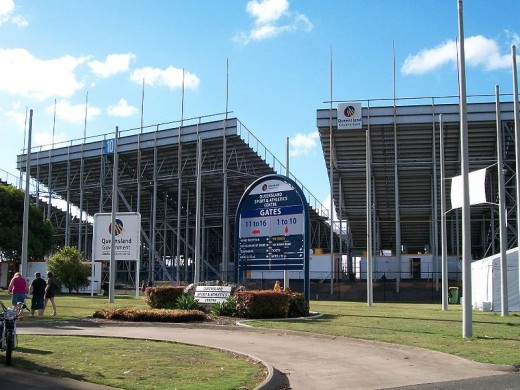
1982 Commonwealth Games Medal Table
Country (Team)
| Position
| Number of Medals
| Gold
| Silver
| Bronze
|
|---|---|---|---|---|---|
Australia
| 1
| 107
| 39
| 39
| 29
|
England
| 2
| 108
| 38
| 38
| 32
|
Canada
| 3
| 82
| 26
| 23
| 33
|
Scotland
| 4
| 26
| 8
| 6
| 12
|
New Zealand
| 5
| 26
| 5
| 8
| 13
|
India
| 6
| 16
| 5
| 8
| 3
|
Nigeria
| 7
| 13
| 5
| 0
| 8
|
Wales
| 8
| 9
| 4
| 4
| 1
|
Kenya
| 9
| 10
| 4
| 2
| 4
|
Bahamas
| 10
| 6
| 2
| 2
| 2
|
Jamaica
| 11
| 4
| 2
| 1
| 1
|
Tanzania
| 12
| 5
| 1
| 2
| 2
|
Malaysia
| 13
| 2
| 1
| 0
| 1
|
Fiji
| 14
| 1
| 1
| 0
| 0
|
Hong Kong
| 17
| 1
| 1
| 0
| 0
|
Zimbabwe
| 17
| 1
| 1
| 0
| 0
|
Northern Ireland
| 17
| 6
| 0
| 3
| 3
|
Uganda
| 18
| 3
| 0
| 3
| 0
|
Zambia
| 19
| 6
| 0
| 1
| 5
|
Guernsey
| 20
| 2
| 0
| 1
| 1
|
Bermuda
| 21
| 1
| 0
| 0
| 1
|
Singapore
| 21
| 1
| 0
| 0
| 1
|
Swaziland
| 21
| 1
| 0
| 0
| 1
|
TOTAL
| 143
| 141
| 153
| 437
|
The 2002 Commonwealth Games
The 2002 Commonwealth Games, held in Manchester, England opening ceremony was at the City of Manchester Stadium on 25th of July, 2002, it was officially opened by Queen Elizabeth II. It was one of the largest multi-sport event to be held in England. The 2002 Commonwealth Games was the 17th edition of the Commonwealth Games. It closed on the 4th of August at the same stadium. 72 nations competed in 17 sports and a total of 898 medals were awarded.
2002 Manchester Commonwealth Games Medal Table
Country (Team)
| Position
| Number of Medals
| Gold
| Silver
| Bronze
|
|---|---|---|---|---|---|
Australia
| 1
| 207
| 82
| 62
| 63
|
England
| 2
| 166
| 54
| 52
| 60
|
Canada
| 3
| 118
| 31
| 41
| 46
|
India
| 4
| 69
| 30
| 22
| 17
|
New Zealand
| 5
| 45
| 11
| 13
| 21
|
South Africa
| 6
| 46
| 9
| 20
| 17
|
Cameroon
| 7
| 12
| 9
| 1
| 2
|
Malaysia
| 8
| 34
| 7
| 9
| 18
|
Wales
| 9
| 31
| 6
| 13
| 12
|
Scotland
| 10
| 30
| 6
| 8
| 16
|
Nigeria
| 11
| 20
| 5
| 3
| 12
|
Kenya
| 12
| 16
| 4
| 8
| 4
|
Jamaica
| 13
| 17
| 4
| 6
| 7
|
Singapore
| 14
| 13
| 4
| 2
| 7
|
Bahamas
| 15
| 8
| 4
| 0
| 4
|
Nauru
| 16
| 15
| 2
| 5
| 8
|
Northern Ireland
| 17
| 5
| 2
| 2
| 1
|
Cyprus
| 18
| 4
| 2
| 1
| 1
|
Pakistan
| 19
| 8
| 1
| 3
| 4
|
Fiji
| 20
| 3
| 1
| 1
| 1
|
Zambia
| 20
| 3
| 1
| 1
| 1
|
Zimbabwe
| 22
| 2
| 1
| 1
| 0
|
Namibia
| 23
| 5
| 1
| 0
| 4
|
Tanzania
| 24
| 2
| 1
| 0
| 1
|
Bangladesh
| 25
| 1
| 1
| 0
| 0
|
Guyana
| 25
| 1
| 1
| 0
| 0
|
Mozambique
| 25
| 1
| 1
| 0
| 0
|
Saint Kitts and Nevis
| 25
| 1
| 1
| 0
| 0
|
Botswana
| 29
| 3
| 0
| 2
| 1
|
Uganda
| 30
| 2
| 0
| 2
| 0
|
Samoa
| 31
| 3
| 0
| 1
| 2
|
Trinidad and Tobago
| 32
| 1
| 0
| 1
| 0
|
Barbados
| 33
| 1
| 0
| 0
| 1
|
Cayman Islands
| 33
| 1
| 0
| 0
| 1
|
Ghana
| 33
| 1
| 0
| 0
| 1
|
Lesotho
| 33
| 1
| 0
| 0
| 1
|
Malta
| 33
| 1
| 0
| 0
| 1
|
Mauritius
| 33
| 1
| 0
| 0
| 1
|
Saint Lucia
| 33
| 1
| 0
| 0
| 1
|
Total
| 898
| 282
| 280
| 336
|
2006 Commonwealth Games
The 2006 Commonwealth Games opened on the 15th and closed 26th of March 2006. Held in Melbourne Australia, it was the biggest sporting event Melbourne has ever held with an approximately 4,500 participants drawn from 71 nations. The main stadium of the Games was Melbourne Cricket Ground where both the opening and the closing ceremony were held. The motto of the 2006 Commonwealth Games was United by the Moment , and this was evident from the choice of the Games mascot which was a Karak, a Red-tailed Black Cockatoo which is a threatened species. Being the 18th edition of the Commonwealth Games, the organization and the complexity of the Games was evident in the number of venues used, 19 sporting venues in Melbourne hosted different sports.
- Melbourne Cricket Ground was the main stadium and the venue for the opening and Closing Ceremonies and Athletics
- Melbourne Sports and Aquatic Centre was the venue for the aquatics, squash and table tennis
- Docklands Precinct was the venue for the walks
- Melbourne Convention and Exhibition Centre was the venues for badminton, boxing and weightlifting
- Melbourne Gun Club was the venue for the clay target shooting
- Melbourne International Shooting Club venue for the small bore as well as the pistol shooting
- Multi Purpose Venue also known as the Melbourne Park was the venue for the finals of the basketball, the track cycling as well as the netball finals
- Rod Laver Arena (Melbourne Park) was the venue for the gymnastics
- Royal Botanic Gardens Circuit was the venue for the cycling road race events
- State Lawn Bowls Centre was the venue for the lawn bowls
- State Netball and Hockey Centre was the venue for preliminaries for the netball and hockey
- St Kilda Foreshore and Beach Road was the venue for the triathlon and cycling time trials
- Telstra Dome was the venue for the Rugby 7s
· Ballarat Minerdome, Bendigo Stadium, Geelong Arena and Traralgon Sports Stadium were venues for basketball while Wellsford Rifle Range was the venue for Full Bore Shooting and State Mountain Bike Course a venue for mountain bike cycling
A Total of 743 medals were awarded the medal table being led by the host Australia who won 222.
It was in the Melbourne Commonwealth Games of 2006 where Samresh Jung ("Goldfinger" as the Games volunteers called him) an Indian sport shooter and an air pistol specialist, who in Melbourne Commonwealth Games won five Gold, one silver and one bronze. He would have won another medal if his gun had not malfunctioned in the standard fire pistol individual competition making him pull out of that specific competition. Samresh became the "Best Athlete of the 18th Commonwealth Games” and was awarded with the David Dixon Award making him the second recipient of the award which had been introduced in the 2002 Commonwealth Games and won first by a South Africa; Natalie Du Toit. The 2006 Commonwealth Games had been opened by Queen Elizabeth the Second and closed by Prince Edward.
2006 Melbourne Commonwealth Games Medal Table
Country (Team)
| Position
| Number of Medals
| Gold
| Silver
| Bronze
|
|---|---|---|---|---|---|
Australia
| 1
| 222
| 84
| 69
| 69
|
England
| 2
| 110
| 36
| 40
| 34
|
Canada
| 3
| 86
| 26
| 29
| 31
|
India
| 4
| 50
| 22
| 17
| 11
|
South Africa
| 5
| 38
| 12
| 13
| 13
|
Scotland
| 6
| 29
| 11
| 7
| 11
|
Jamaica
| 7
| 22
| 10
| 4
| 8
|
Malaysia
| 8
| 29
| 7
| 12
| 10
|
New Zealand
| 9
| 31
| 6
| 12
| 13
|
Kenya
| 10
| 18
| 6
| 5
| 7
|
Singapore
| 11
| 18
| 5
| 6
| 7
|
Nigeria
| 12
| 17
| 4
| 6
| 7
|
Wales
| 13
| 19
| 3
| 5
| 11
|
Cyprus
| 14
| 6
| 3
| 1
| 2
|
Ghana
| 15
| 3
| 2
| 0
| 1
|
Uganda
| 15
| 3
| 2
| 0
| 1
|
Pakistan
| 17
| 5
| 1
| 3
| 1
|
Papua New Guinea
| 18
| 2
| 1
| 1
| 0
|
Isle of Man
| 19
| 2
| 1
| 0
| 1
|
Namibia
| 19
| 2
| 1
| 0
| 1
|
Tanzania
| 19
| 2
| 1
| 0
| 1
|
Sri Lanka
| 22
| 1
| 1
| 0
| 0
|
Mauritius
| 23
| 3
| 0
| 3
| 0
|
Bahamas
| 24
| 2
| 0
| 2
| 0
|
Northern Ireland
| 24
| 2
| 0
| 2
| 0
|
Cameroon
| 26
| 3
| 0
| 1
| 2
|
Botswana
| 27
| 2
| 0
| 1
| 1
|
Malta
| 27
| 2
| 0
| 1
| 1
|
Nauru
| 27
| 2
| 0
| 1
| 1
|
Bangladesh
| 30
| 1
| 0
| 1
| 0
|
Grenada
| 30
| 1
| 0
| 1
| 0
|
Lesotho
| 30
| 1
| 0
| 1
| 0
|
Trinidad and Tobago
| 33
| 3
| 0
| 0
| 3
|
Seychelles
| 34
| 2
| 0
| 0
| 2
|
Barbados
| 35
| 1
| 0
| 0
| 1
|
Fiji
| 35
| 1
| 0
| 0
| 1
|
Mozambique
| 35
| 1
| 0
| 0
| 1
|
Samoa
| 35
| 1
| 0
| 0
| 1
|
Swaziland
| 35
| 1
| 0
| 0
| 1
|
TOTAL
| 743
| 245
| 244
| 254
|
